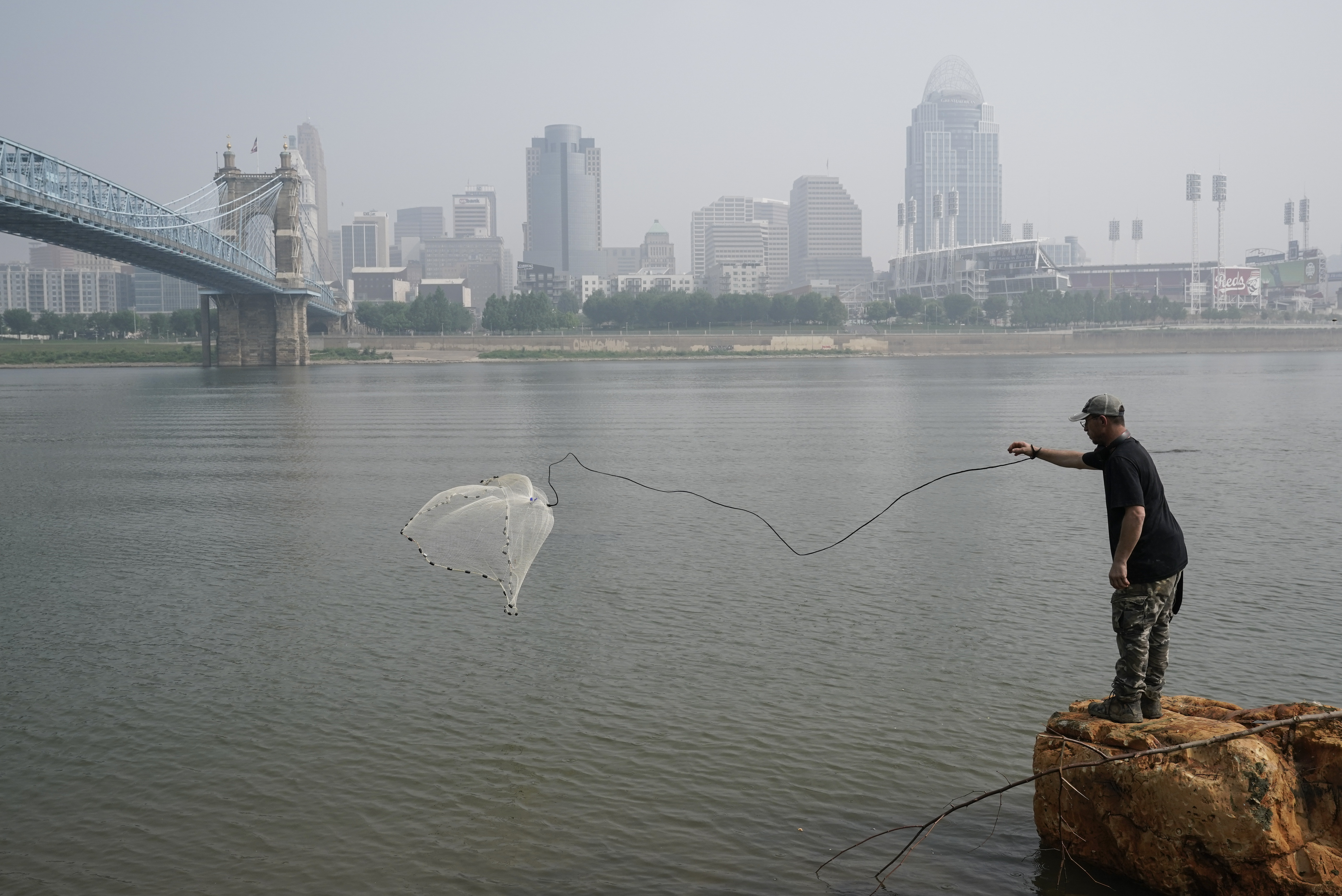
Poor air quality caused by Canadian wildfires has continued to affect large swathes of North America, with nearly a third of United States residents warned of unhealthy conditions.
Air quality warnings on Thursday stretched from Wisconsin and northern Illinois across Michigan and into New York and the East Coast, according to the US National Weather Service.
Meanwhile, the US Environmental Protection Agency’s real-time air quality map showed “unhealthy” air from the Midwest border with Canada down to North Carolina and Tennessee. Pockets of “very unhealthy” air were recorded over the cities of Madison, Wisconsin, Cedar Rapids, Iowa and Lansing, Michigan.
All told, more than 100 million US residents in the country of about 330 million were urged to limit prolonged outdoor activities. Those suffering from pulmonary or respiratory diseases were urged to wear masks, while children and the elderly were also advised to minimise or avoid strenuous activities.
Reporting from Chicago, Illinois, Al Jazeera’s John Hendren said that, while conditions have improved slightly, concerns over health risks persist.
“This is a third straight day with a very unhealthy air quality here in Chicago. There’s a 500-point scale for air quality. We have been at over 200 for most of the past 24 hours,” he said. “To give you an idea of how bad that is, at 150 it is the equivalent of smoking seven cigarettes a day if you spend most of the day outside”.
Air Quality Update: We’re waking up to “very unhealthy” air quality, due to wildfire smoke from Canada. It is recommended to avoid intense physical activity outdoors and reschedule or move activity indoors.
Take a deeper dive into the Index: https://t.co/GTLJSvm8A1 pic.twitter.com/F4MhahAnhY
— @publichealthmdc (@PublicHealthMDC) June 28, 2023
The most recent stretch of hazy days comes as Canada continues to battle its worst early wildfire season on record. In 2023, an area of 8 million hectares (19.8 million acres) had already burned.
As of Wednesday, there were 477 active blazes in Canada, with about half considered out of control, spreading from the Pacific to the Atlantic coasts.
With the hottest months of the year still ahead, experts say there is unlikely to be meaningful reprieve any time soon.
The weather conditions that have caused the smoke to concentrate over large swathes of the US are also unlikely to change in the coming days, according to the National Oceanic and Atmospheric Administration’s Weather Prediction Center (WPC).
And while temporary respite could come as low-pressure systems cycle through the area, meteorologist Bryan Jackson told the Associated Press news agency, that shift is likely to be accompanied by the deadly hot temperatures and high humidity that has afflicted the US south in recent days.
Jackson pointed to St Louis, Missouri, which had two days of unhealthy air Tuesday and Wednesday, and said that for Thursday “they’ll get an improvement of air quality with the very hot and humid heat”.
The forecast for the city is for temperatures that feel like 42.8C (109F) – with 38.3C (101F) heat and stifling humidity.
It’s a pattern that’s likely to repeat as long as the Canadian fires continue to burn.
“Pick your poison,” WPC forecast operations chief Greg Carbin told the news agency. “The conditions are not going to be very favorable.”







